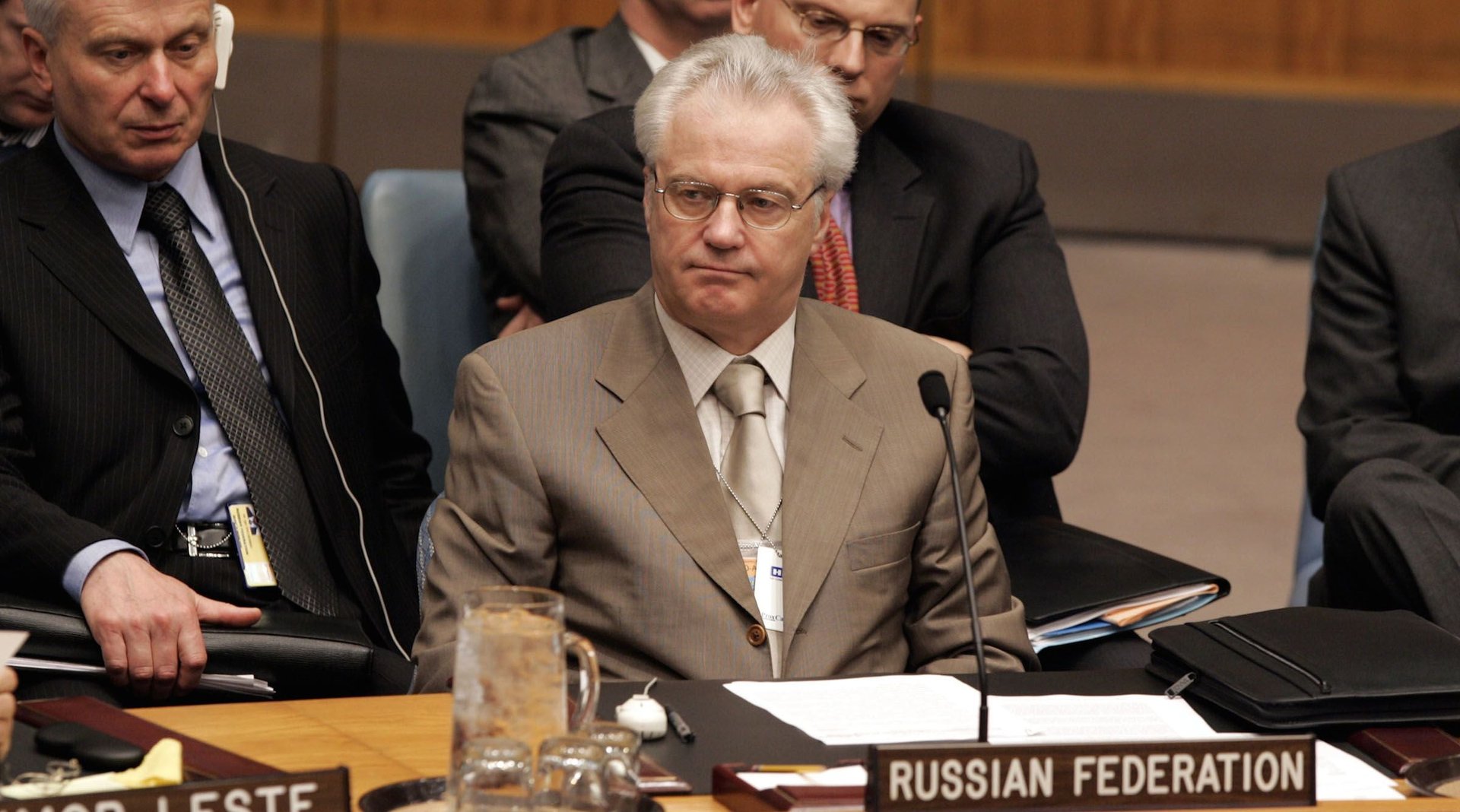Russia vetoed a UN resolution that would have called Srebrenica massacre a genocide
After 24 hours of negotiations with Britain and the United States, Russia denied a United Nations resolution Wednesday that would have acknowledged Srebrenica, a massacre that took place in 1995 during the Bosnian war, as an act of genocide.


After 24 hours of negotiations with Britain and the United States, Russia denied a United Nations resolution Wednesday that would have acknowledged Srebrenica, a massacre that took place in 1995 during the Bosnian war, as an act of genocide.
Russian Ambassador Vitaly Churkin said that the resolution—put forth by the United Kingdom in the Security Council—was “not constructive, confrontational and politically-motivated,” Al Jazeera reported. He told the council meeting that the resolution would only do more to exacerbate tensions in the Balkans.
Russia has a permanent seat on the United Nations Security Council, which means that its veto automatically blocks the passing of the resolution, despite a vote of 10 to one—with abstentions from Angola, China, Nigeria, and Venezuela.
Srebrenica is widely considered the greatest atrocity in Europe since World War II. More than 8,000 Bosnian Muslims were slaughtered, mostly men and boys in and around the town of Srebrenica, Bosnia, by the Serbian military. They were at a site that was supposed to be a United Nations safe haven.
Churkin insisted that the resolution not include the “genocide” label. Quoted in Al Jazeera, British Deputy Ambassador Peter Wilson said the term “genocide” was non-negotiable. ”Genocide occurred at Srebrenica,” he said. “This is a legal fact, not a political judgment. On this there is no compromise.”
The term genocide was legally defined in 1948 by the UN general assembly as acts committed with the intent to destroy, in whole or in part, a national, ethnic, racial or religious group, including killing or causing serious bodily harm.
Since the massacre 20 years ago, two international legal bodies have found Srebrenica to have been a genocide. A UN tribunal at the Hague has already convicted individual participants of genocide. A formal UN recognition, however, would be a crucial next step to fully classifying the massacre as genocide.
US Ambassador Samantha Power tweeted a powerful response to Russia’s decision: